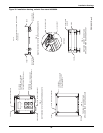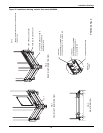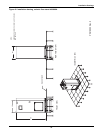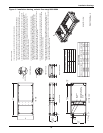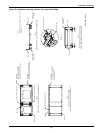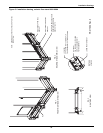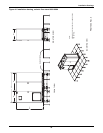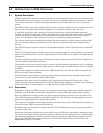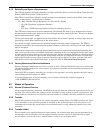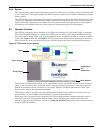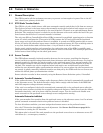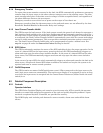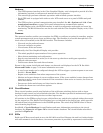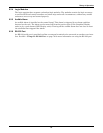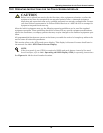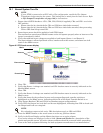
Introduction to STS2 Operations
58
8.1.2 Reliability and Agency Requirements
The STS2 is designed for high reliability and high availability with a critical bus Mean Time Between
Failure (MTBF) exceeding 1,000,000 hours.
The STS2, Control/Power Module, and all its options are designed, tested and certified, where appli-
cable, to meet agency requirements as follows:
• UL 1008: Transfer Switch Equipment, for UL and ULc listing
• UL1459: Telephone equipment (Modem)
•NEC
• FCC Part 15 EMI emission limits for Class A computing devices.
The STS2 uses conservatively rated components, minimizing the need to go to maintenance bypass.
All maintenance and repair work can be done through the front panel of the unit. This access makes
repairs and maintenance easier.
Gating and control logic are partitioned so that failure of one source’s gating or sensing logic does not
prevent the switch from transferring to the other source.
All control and logic components are mounted separate from the power components. The STS2 is
designed to minimize the exposure of hazardous voltages to allow safe servicing of the unit while the
load is energized.
All electrical components requiring normal maintenance are replaceable without de-energizing the
load, as long as one source is available. Solid-state switching devices are packaged to allow safe repair
of those devices without having to de-energize the load. All non-automatic switches or circuit breakers
are the plug-in or draw-out type to allow replacement without de-energizing the load. All solid-state
power switching devices are rated to prevent hazardous device failure in power systems with avail-
able fault currents up to the defined limits, as listed in 15.1.5 - Electrical Requirements.
8.1.3 Factory Backup and Service Assistance
Because improper installation can cause a system to fail, a Liebert Global Services service technician
should thoroughly inspect the unit to ensure it is properly installed and its operating parameters are
properly configured.
Once the STS2 is properly installed, you, as the on-site operator, can easily monitor the unit’s opera-
tion utilizing the touch screen or LEDs.
If you need assistance, or have questions, you can contact Liebert for technical support at
1-800-LIEBERT (800-543-2378).
8.2 Modes of Operation
8.2.1 Normal (Preferred Source)
Under normal operating conditions, the STS2 routes power from the preferred input source to the out-
put load. The unit monitors the voltage current and phase of each source to ensure that both are oper-
ating within set tolerances, and that the alternate source is available, should a transfer be required
8.2.2 Transfer
Should the preferred source fail or be outside acceptable voltage limits, the STS2 transfers the input
to the alternate source until the problem is rectified in the preferred source. The unit can be set to
automatically transfer the input back to the preferred source, or only allow the transfer to be done
manually.
8.2.3 Transfer Inhibit
For a transfer to be completed between input sources, the sources must meet certain parameters, or
the transfer cannot take place. Uninterrupted transfer between sources is inhibited due to input
source failure, sources out of sync, switch failure, or the unit is in bypass mode.



